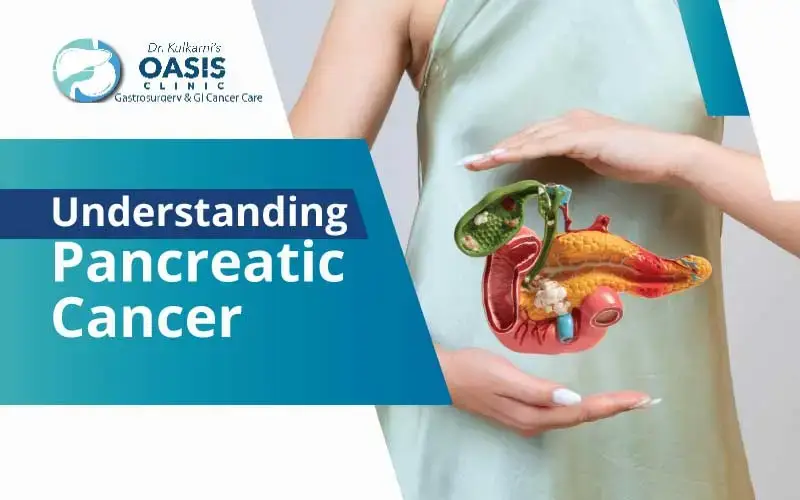Understanding Pancreatic Cancer

Symptoms of Pancreatic CancerJump On :
It is important for patients to understand pancreatic cancer. This cancer is relatively rare, but it is often deadly.
In this blog post, we will discuss the basics of pancreatic cancer, including its symptoms and treatment options. This information will help patients to better understand their disease and make informed decisions about their treatment.
Overview
Pancreatic cancer begins in the pancreas, a gland located behind the stomach that helps digest food. The most common type of pancreatic cancer is called adenocarcinoma, which starts in the cells that line the pancreatic ducts.
Although pancreatic cancer is rare, it’s one of the deadliest cancers because there are often no warning signs until the disease is advanced. Treatment options include surgery, radiation therapy, and chemotherapy. For some people with pancreatic cancer, a liver transplant may be an option.
Symptoms of Pancreatic Cancer
The early stages of pancreatic cancer often do not cause any symptoms. As the disease progresses, it may cause the following:
- Jaundice (yellowing of the skin and whites of the eyes)
- Itchy skin
- Dark urine
- Light-colored stools
- Loss of appetite
- Weight loss
- Fatigue
- Nausea and vomiting
- Pain in the upper abdomen or back
These symptoms may be caused by other conditions, so it’s important to see a doctor if you experience any of them
When to see a Doctor / Specialist
Pancreatic cancer is notoriously aggressive, and early detection is critical. If you have any reason to suspect you may have pancreatic cancer, don’t delay in seeking medical attention. The sooner you see a doctor, the better your chances are of beating this disease.
Early detection is critical for successful treatment of pancreatic cancer.
Also, read more about, What are the treatment options for Pancreatic cancer
Is Pancreatic Cancer Curable?
However, there are some exceptions to this rule. In some cases, pancreatic cancer may be caught in its early stages, before it has had a chance to spread. When this happens, surgery may be an option.
Also, pancreatic cancer is difficult to treat. Part of the problem is that the pancreas is located deep within the abdomen, making it hard to reach with surgery or other treatments. Additionally, the pancreas is surrounded by vital organs like the stomach and intestines, which makes surgery even more complicated and risky.
Click to know more in detail about, Is Pancreatic cancer curable?
What Causes Pancreatic Cancer
- Cigarette smoking –
This is the most important risk factor for pancreatic cancer
- Age –
Pancreatic cancer is more common in people over the age of 60
- Family history –
Having a family member with pancreatic cancer or other inherited cancer syndromes increases your risk
- Diabetes –
People with diabetes are more likely to develop pancreatic cancer
- Obesity –
Being obese may increase your risk of pancreatic cancer
- Chronic Inflammation of the Pancreas –
This condition, called pancreatitis, can increase your risk of pancreatic cancer
- Exposure to Certain Chemicals –
People who are exposed to certain industrial chemicals, such as pesticides and dyes, may have a higher risk of developing pancreatic cancer.

Dr. Aditya Kulkarni
MS, DNB, FRCS, MCh (Surgical Gastroenterology & GI Oncology)
Dr. Aditya Kulkarni is a Consultant of Laparoscopic and Robotic Gastrointestinal, Hepato-biliary-pancreatic, and Cancer Surgeon at the renowned Oasis Surgery Clinic Pune.
